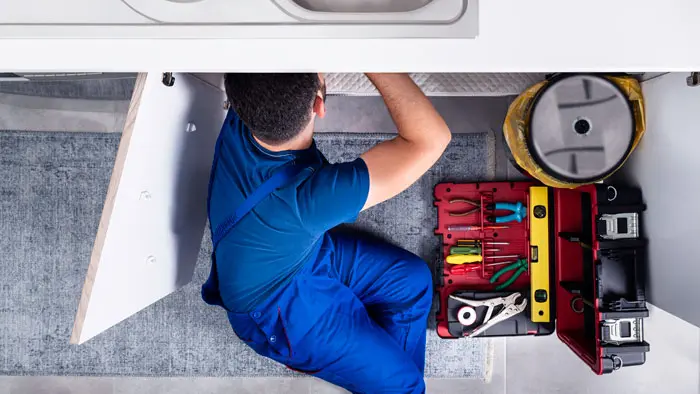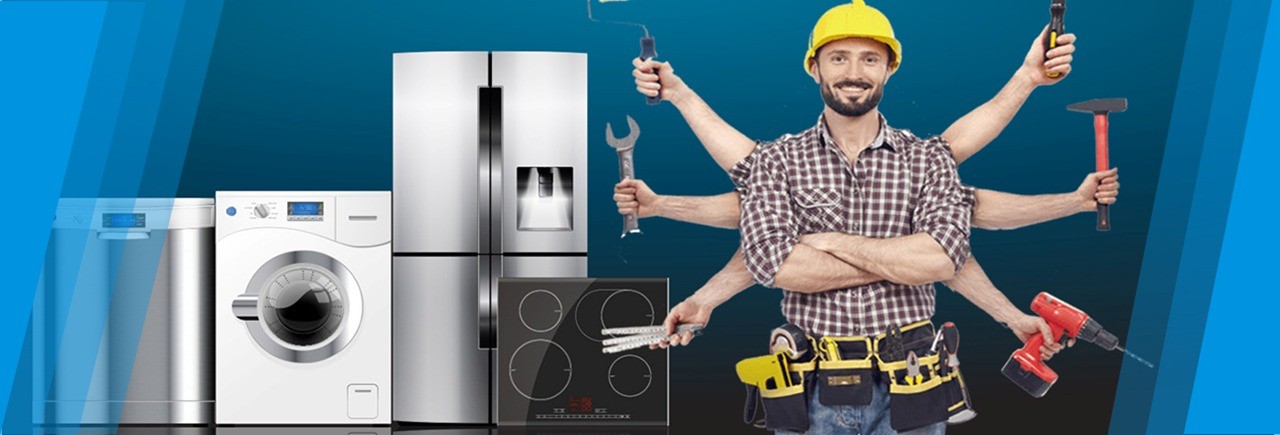How to Handle a Washer That Stops Draining – Dependable Refrigeration & Appliance Repair Service Washing Machine Repair
How to Handle a Washer That Stops Draining – Dependable Refrigeration & Appliance Repair Service Washing Machine Repair
Blog Article
The Ultimate Guide to Recognizing Appliance Repair Work at Home
When your refrigerator stops cooling down or your stove declines to warmth, it can really feel frustrating. Recognizing appliance repair work in your home can save you money and time. You'll discover to identify signs, make use of essential tools, and comply with a systematic troubleshooting process. Before you begin, there are critical security preventative measures you need to take into account. What are the most usual problems, and how can you repair them? Allow's check out the essentials.
Typical Home Appliance Troubles and Their Symptoms
When your appliances begin breaking down, it's important to recognize the indications at an early stage. Disregarding them can lead to bigger concerns and expensive repairs. If your refrigerator isn't cooling correctly, you may discover warm spots or condensation forming. This might show a falling short compressor or an obstructed vent.Your dishwashing machine might reveal issues through dirty recipes or uncommon noises throughout cycles. If you hear grinding or clanking, it's time to investigate.A cleaning equipment that will not spin or drain can leave you with soggy washing, suggesting a clogged up drainpipe or a malfunctioning pump.Lastly, if your stove's temperature level appears off or it takes forever to pre-heat, you may be dealing with a defective thermostat. By remaining sharp to these signs, you can attend to problems before they escalate into major repair services.
Necessary Devices for Home Appliance Repair Service
When you're tackling appliance repair work in your home, having the right tools is important. Fundamental hand tools like screwdrivers and pliers will assist you dismantle and deal with numerous appliances, while electrical screening gadgets assure you're functioning safely with wiring. Allow's review what you need to get started on your fixing journey.
Basic Hand Devices
Having the right devices is essential for effective appliance repair work in your home. Begin with a reliable screwdriver collection, consisting of both flathead and Phillips kinds, as screws are typical in home appliance assembly. Pliers are likewise important; they assist with gripping, twisting, and reducing cords or small elements. A set of needle-nose pliers can get to limited areas conveniently. You'll need an excellent flexible wrench for tightening or loosening up nuts and bolts. An utility blade comes in handy for puncturing product packaging or insulation. Finally, don't fail to remember a tough workbench or surface area to safely arrange your devices and parts. With these basic hand tools, you'll be well-prepared to take on most appliance fixings that come your way.
Electric Screening Instruments
Along with basic hand tools, electric testing tools play a necessary function in appliance repair work. These devices aid you diagnose electrical problems and guarantee appliances function securely. A multimeter is essential; it gauges voltage, existing, and resistance, enabling you to identify problems rapidly. A non-contact voltage tester is another essential, letting you detect live wires without making straight get in touch with, boosting your security. Secure meters are excellent for measuring present circulation in cables without disconnecting them, saving you time and effort. Additionally, circuit testers can rapidly check if outlets are operating properly. By utilizing these gadgets, you'll enhance your troubleshooting process and improve your repair abilities, making device maintenance a great deal simpler.
Step-by-Step Guide to Diagnosing Appliance Issues
When your home appliance acts up, it can be irritating, but identifying the concern doesn't have to be frustrating. You'll learn to identify usual issues and use efficient repairing strategies. Allow's stroll through the steps to get your home appliance back in functioning order.
Typical Appliance Troubles

Troubleshooting Techniques Described

Fixing Major Cooking Area Devices: A Closer Look
Have you ever before wondered just how to tackle typical problems with your kitchen home appliances? Repairing significant cooking area devices like fridges, ovens, and dishwashers can be simpler than you think. Beginning by determining the trouble-- whether it's a fridge not cooling down or a stove that will not heat. Usually, a straightforward reset or Visit Your URL examining the power resource can fix the issue.For fridges, clean the condenser coils and check the door seals. If your oven's not home heating, check the burner and thermostat. Dishwashers might simply need a tidy filter or a reset to obtain them back at work. Always disconnect the device before diving into repairs to assure your safety.Don' t fail to remember to consult the user manual for details troubleshooting tips connected to your version. With a little bit of patience and the right tools, you can confidently deal with appliance repair work and conserve cash in the process!

Fixing Washing Devices: Tips and Techniques
When your washing devices begin breaking down, it can really feel overwhelming, yet troubleshooting them does not need to be a problem. Beginning by examining the power supply. Confirm the device is connected in and the outlet is working. Next, examine the door or cover switch; a damaged button can avoid the equipment from operating.For washers, if it's not rotating, inspect for out of balance lots. Redistributing the clothing could solve the concern. If your dryer isn't heating, clean the dust filter and inspect the vent for blockages.Listen for unusual noises; they can indicate a problem. If your device is leaking, examine the tubes for splits or loose links. Paper any kind of mistake codes presented on electronic displays, as they can lead you in identifying the concern. Seek advice from the customer guidebook for details troubleshooting tips related to your model.
Safety Preventative Measures to Take During Repairs
Prior to you start any type of appliance repair work, it's important to prioritize safety and security to stop accidents or injuries. First, unplug the home appliance or switch off the breaker to guarantee no power reaches it while you work. Use protected tools to decrease the risk of electric shock. Use safety and security goggles and handwear covers to safeguard on your own from sharp sides or debris (Dependable Refrigeration & Appliance Repair Service Oro Valley AZ 85755).Make specific your work space is tidy and well-lit, so you can see what you're doing. Maintain children and pets away from the area to prevent interruptions and possible risks. If you're taking care of gas home appliances, lone star appliance repair be additional careful; check for leakages prior to proceeding.Take your time, and don't hurry via fixings. If you feel unclear regarding any type of action, it's far better to stop and research than to think. Adhering to these safety measures will certainly assist produce a much safer environment for your DIY device repair service task
When to Call an Expert for Help
Just how do you recognize if it's time to contact a specialist for home appliance repairs? If you've attempted basic troubleshooting without success, it's a clear indication. If your home appliance still won't begin or reveals unusual sounds after resetting it, do not think twice to seek professional help.When you observe leakages, smoke, or melting smells, focus on safety and security and call a pro quickly. These concerns can bring about more significant damage or posture risks to your home.Also, if your appliance is under service warranty, speaking to an expert is commonly the most effective course. They can ensure that repair services won't nullify your service warranty, conserving you money in the lengthy run.Finally, if you're unclear or unpleasant with intricate repair services, it's important to leave it to the specialists. Bear in mind, tackling complicated problems without the ideal knowledge can lead to expensive mistakes. Depend on a professional when in doubt!
Frequently Asked Questions
Exactly How Can I Stop Device Troubles in the Future?
To prevent device troubles in the future, you need to carry out regular maintenance, look for wear and tear, clean filters, and avoid overloading. Staying positive will certainly aid expand their life expectancy and maintain them running efficiently.
What Are the Many Typical Do It Yourself Appliance Repair Mistakes?
You could neglect safety and security preventative measures, avoid fixing steps, or utilize wrong tools when attempting do it yourself home appliance repairs. Rushing the process or disregarding manufacturer standards can bring about more substantial concerns and costly errors. Stay patient and notified!
Exactly how Do I Know if a Component Requirements Replacement?
You can tell if a part needs replacement by checking for uncommon sounds, leakages, or inconsistent performance. If the device struggles to run properly or reveals visible damage, it's most likely time for a substitute.
Can I Use Generic Components for Device Fixes?
Yes, you can utilize common parts for appliance repairs, yet establish they work - Dependable oven coil replacement Refrigeration & Appliance Repair Service Washing Machine Repair. Common parts could conserve you cash, but they can impact performance or durability, so consider your alternatives very carefully prior to deciding
What Guarantees Cover Device Services?
A lot of home appliance warranties cover repairs for manufacturing defects, yet they often leave out damage from misuse. Check your service warranty terms carefully, as some might call for making use of qualified professionals and original parts for coverage to remain legitimate.
Report this page